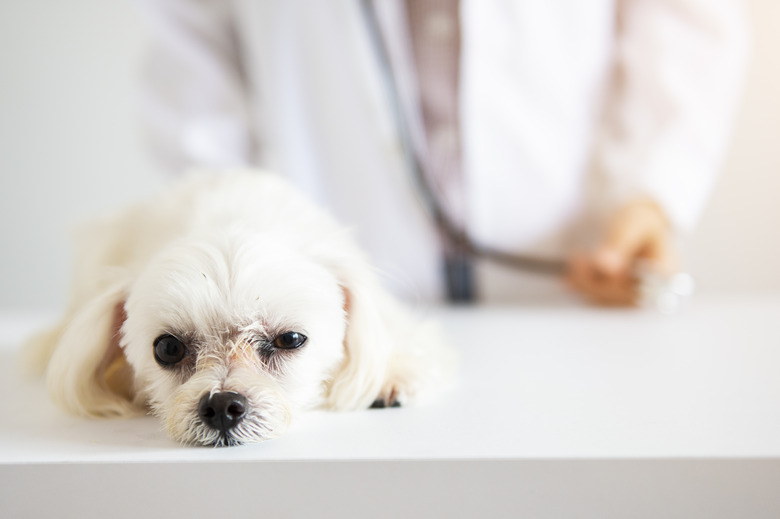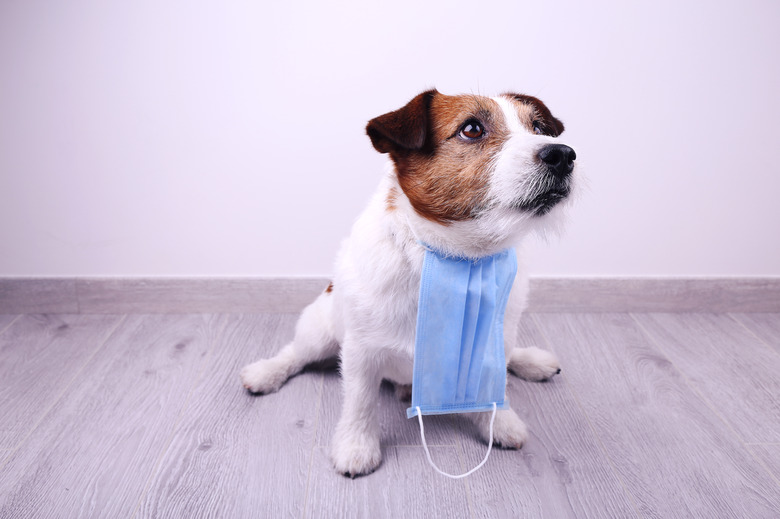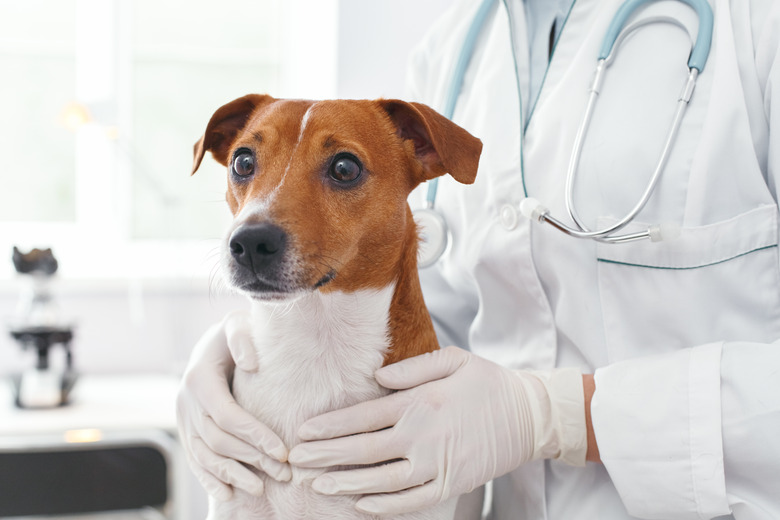What Should I Do If My Dog Eats Hand Sanitizer?
We may receive a commission on purchases made from links.
You may have a lot of hand sanitizer around your house right now to protect you from getting sick. While it's good for you and your family, if your dog ingests it, it could be very detrimental to his health.
Whether your dog has eaten a small amount or a whole bottle of hand sanitizer, the bottom line is you'll likely need to seek medical attention for him right away.
What’s in hand sanitizer?
What's in hand sanitizer?
Hand sanitizer is an alcohol-based mixture that can be used to kill germs and prevent the spread of disease. Though it's not as effective as soap and water, having a bottle of hand sanitizer around is convenient and better than nothing, especially when there is widespread sickness. Aside from alcohol, also called ethanol, hand sanitizer will contain things like aloe vera gel, water, and essential oil or some other type of fragrance. This is just a short list of ingredients, however. Purell, for example, also contains glycerin, tocopheryl acetate, and aminomethyl propanol, among other things.
What to do if your dog eats hand sanitizer
What to do if your dog eats hand sanitizer
If your dog does eat even a small amount of hand sanitizer, you'll want to monitor his symptoms and behavior, since it is poisonous to dogs and can even result in death. He'll likely be OK if he licked your hand that had the substance on it, but you can never be too careful.
Some signs that he has hand sanitizer poisoning include vomiting, lethargy, weak respirations, low body temperature, tremors, and a lack of coordination. His breath may smell like alcohol, or you may smell it in his vomit. He may be excited out of nowhere, urinate excessively, or not be able to control his urination.
Though you won't be able to see it at home, he could also experience a drop in blood pressure and blood sugar or go through cardiac arrest. If your dog is severely intoxicated, he could start to have seizures or respiratory failure.
Once you see any of these signs, take him to the veterinarian right away. Even if he only ate a small amount, you should still call your vet – or the Pet Poison Hotline at (855) 764-7661 – to get help.
Treating hand sanitizer poisoning in your dog
Treating hand sanitizer poisoning in your dog
Your veterinarian will perform tests on your dog like finding out his complete blood count, finding out blood ethanol concentration, and doing a blood gas analysis to determine how much acid is in his body.
Then, your veterinarian may use activated charcoal to do gastrointestinal detoxification, utilize intravenous fluid therapy, do cardiopulmonary resuscitation, and give your dog respiratory or ventilation support. It all depends upon what kinds of symptoms he's experiencing and how far along they have progressed.
In the worst-case scenario, a dog can die from hand sanitizer poisoning, so you must get him to the vet right away to avoid that fate.
Preventing hand sanitizer poisoning
Preventing hand sanitizer poisoning
Even though you need it right now, don't leave bottles of hand sanitizer lying around the house, in the car, or anywhere else where your dog has access to them. Put the bottles on a high shelf, like in a closed medicine cabinet.
When you have hand sanitizer on, don't let your dog lick your hands. If your pup does lick your hands a lot, use soap and water as much as possible instead. Usually, a dog will be disgusted by the gross taste of the hand sanitizer and won't want to lick your hands. It should be perfectly fine to pet your dog after putting hand sanitizer on, as long as he's not allergic to any of the ingredients in it.
While you may think that alcohol-free hand sanitizer is a good option for pet safety, it won't be effective against spreading germs, so it's useless to humans.
Keeping your dog germ-free
Keeping your dog germ-free
You want everyone in your home— including your pets—to be healthy and as germ-free as possible. It's good to follow some best practices like washing out your dog's bowls daily with soap and warm water, using pet wipes and spray, putting dog booties on him for walks and talking them off before you go inside, and giving him a regular bath. Some dog illnesses can be transferred to humans, so you should always practice good hygiene for your pup and keep him and his belongings clean at all times.
Conclusion
Conclusion
If your dog eats hand sanitizer, look for signs that he is ill, and call your veterinarian and/or the Pet Poison Helpline immediately. Taking these steps will help your dog get the care he needs and ensure he can recover from ingesting this substance.
Always check with your veterinarian before changing your pet's diet, medication, or physical activity routines. This information is not a substitute for a vet's opinion.


